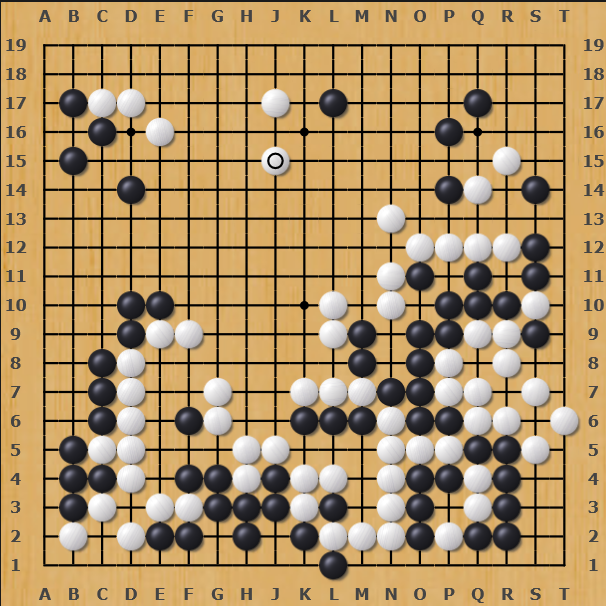A curious reader asked if I still followed the happenings in the world of Chess. The answer was “yes”, with the caveat that I am very selective of what I watch. These daze the focus is on Senior Chess, and players I know, or enjoy watching because they play to win, which should be the only reason to play. With that in mind I would like to present two games by the man Senior Master Brian McCarthy (https://xpertchesslessons.wordpress.com/2021/04/24/brian-mccarthy-r-i-p/) spoke highly of, IM Jay Bonin.

The fact is that I had considered turning the first game presented into a post because who plays the Gunderam defense? When was the last time you saw a game with the Gunderam? Maybe I should have added “offbeat” to the above concerning the games I choose to view…
The decision to sit down and write this post after seeing a game featuring the “IRON MAN” of CHESS, in the most recent The Marshall Spectator, May 15, 2024 edition.
Writing about Chess games takes much time, especially inserting diagrams into the post. Since all I needed to do was cut and paste the decision to write the post was easy.
The thing about playing against the Gunderam is that you know you should win. Even a draw is a loss because there goes a sure one half point. The onus is on the playing making the first move. If you do not win you are a failure, which puts the pressure on the player facing such a poor opening.
Why would The Bone play such a poor opening? Because Jay plays for the love of the game, and possibly because he would prefer to play an opening getting the youngsters our of the book.
Jonathan Sigfredo Subervi vs IM Jay Bonin
Marshall Chess Club FIDE Premier April 2024
ECO: C40 Gunderam defence
- e4 e5 2. Nf3 Qe7 3. Nc3 Nf6 4. Bc4 Nc6 5. O-O d6 6. h3 Be6 7. Bb5 a6 8. Bxc6+ bxc6 9. d4 Nd7 10. Re1 f6 11. d5 cxd5 12. exd5 Bf7 13. Nd4 Nb6 14. Be3 Nc8 15. f4 Qd7 16. Ne6 Ne7 17. Qf3 Rb8 18. fxe5 dxe5 19. Nxf8 Kxf8 20. Ba7 Re8 21. Rad1 Kg8 22. Bc5 Nf5 23. Qd3 Ra8 24. Ne4 h5 25. b4 Bg6 26. Rf1 Kh7 27. c4 Rac8 28. Qe2 Rhe8 29. Kh2 Rcd8 30. a3 Nd4 31. Qe1 Kh8 32. a4 Nf5 33. a5 Rb8 34. Rf2 Qf7 35. Rb2 Qd7 36. Rf2 Qf7 37. Rb2 Qd7 38. Qf1 Ra8 39. Qd3 Rab8 40. Rf2 Qf7 41. g4 hxg4 42. hxg4 Nh6 43. Rg1 c6 44. Qf3 Bxe4 45. Qxe4 cxd5 46. cxd5 Rbd8 47. d6 Qe6 48. Kg3 Kg8 49. Rh1 Rd7 50. Qg6 Nf7 51. Rh5 Ng5 52. Be3 f5 53. Qxe6+ Nxe6 54. Rhxf5 Rxd6 55. Rxe5 Rb8 56. Re4 Kh7 57. Re2 Kg6 58. Ba7 Re8 59. Re5 Rc6 60. Bc5 Kf7 61. Rf5+ Kg8 ½-½
https://lichess.org/broadcast/marshall-chess-club-fide-premier-april-2024/round-2/KZrpAKKM/8n2IwPtA
White Player Cejas, Jose A
Black Player Garcia Campitelli, Gonzalo (2114)
Event: ARG-ch U18 sf
Site: San Bernardo Date: 05/05/2002
Round: 6 Score: ½-½
ECO: C40 Gunderam defence
1.e4 e5 2.Nf3 Qe7 3.Bc4 g6 4.O-O d6 5.Nc3 c6 6.d4 Nh6 7.dxe5 dxe5 8.h3 f6 9.Be3 Be6 10.Bc5 Qf7 11.Bxf8 Rxf8 12.Bxe6 Qxe6 13.Qd2 Nf7 14.Rfd1 Na6 15.Qe3 Qc4 16.Rd2 Qc5 17.Qe2 Rd8 18.Rad1 Ke7 19.Ne1 Rxd2 20.Rxd2 Nd8 21.Qd3 Kf7 22.Qf3 Qe7 23.Qd1 Nb8 24.Ne2 Ne6 25.c3 Rd8 26.Kf1 Na6 27.b4 Rxd2 28.Qxd2 Qd8 29.Nf3 Qxd2 30.Nxd2 Ke7 31.Ke1 Nac7 32.Nb3 Ne8 33.Kd2 Nd6 34.Kd3 h5 35.a4 Kd7 36.Nd2 Nf7 37.c4 h4 38.Nf3 g5 39.Nh2 Nh8 40.Ng4 Ke7 41.Ne3 Ng6 42.Nf5+ Kd7 43.g3 a5 44.bxa5 Nc5+ 45.Ke3 hxg3 46.fxg3 Nxa4 47.h4 gxh4 48.gxh4 Nb2 49.h5 Nf8 50.c5 Nc4+ 51.Kd3 Nxa5 52.Kc3 Kc7 53.Nd6 Nh7 54.Ne8+ Kd7 55.Kb4 Nb3 56.Kxb3 Kxe8 57.Ka4 Kf7 58.Ng3 Ng5 59.Ka5 Kg7 60.Kb6 Ne6 61.Nf5+ Kh7 62.Nd6 Kh6 63.Nxb7 Nd4 64.Nd8 Kxh5 65.Nxc6 Kg6 66.Ne7+ Kf7 67.Nf5 Ke6 68.Nd6 Kd7 69.Nc4 Ke6 70.Ne3 Kd7 71.Kb7 Nc6 72.Nd5 Nd8+ 73.Kb6 Ke6 74.Kc7 Nf7 75.Kb6 Nd8 76.Ne3 Kd7 77.Ng4 Ke6 78.Nh6 Kd7 79.Ng8 Ke6 80.Nh6 Kd7 81.Kb5 Nc6 82.Kb6 Nd8 83.Nf5 Nc6 84.Ne3 Nd8 85.Nc4 Nc6 86.Na5 Nd4 87.c6+ Nxc6 88.Nxc6 Ke6 89.Nd8+ Ke7 90.Nb7 f5 91.exf5 Kf6 92.Nd6 e4 ½-½
https://www.365chess.com/game.php?back=1&gid=203816&m=9
The following game recently arrived in the inbox when May 15, 2024 edition of The Marshall Spectator. TMS is absolutely FREE and anyone can receive it, so what are you waiting for?
FIDE Premier Games Analyzed, by GM Aleksandr Lenderman
You can play through the games with the notes from this article here.
Round 5: Bonin, Jay – Klenoff, Caleb
Prior to this game, Jay Bonin was riding a 15 game winning streak, and was currently tied for first with IMs Gus Huston and Mykola Bortnyk. However, his opponent, the young Caleb Klenoff likely had ambitions to win the game, since the win would not only get him potentially a share first by leapfrogging Jay, but also, prior to the tournament, he was extremely close to the NM title (2200 USCF rating), and quite possibly, he might’ve needed a win to get the title. So, despite being black, Caleb Klenoff chose the sharp Benoni defence, an aggressive opening, playing for a win.
1. d4 Nf6 2. Nf3 e6 3. c4 c5 4. d5 d6 5. Nc3 exd5 6. cxd5 g6 7. Bg5 h6 8. Bh4 g5 9. Bg3 Nh5 10. Nd2 Nxg3 11. hxg3 Nd7 12. Nc4 Nb613. e3 Bg7 14. Qc2 Nxc4 15. Bxc4 Qe7 16. Bb5+ Bd7 17. a4 Rb8 18. g4 a6 19. Bxd7+ Qxd7 20. Qe4+ Kf8 21. Qf5 Qxf5 22. gxf5 Be5 23. Ke2 Kg7 24. Ne4 c4 25. Ra2 Rhc8 26. g3 Re8 27. Kf3 b5 28. axb5 axb5 29. Rc1?! Inaccuracy. Ra6 was best.

(29. Ra6 Ra8 30. Rb6 Reb8 31. Rc6 Rc8 32. Rb6 Rcb8)
29… Ra8 30. Rca1 Rxa2 31. Rxa2 Rb8

32. Kg4?? Blunder. Nd2 was best. (32. Nd2 Bxb2 33. Rxb2 c3 34. Rb1 cxd2 35. Ke2 h5 36. Kxd2 b4 37. Rb3 h4 38. gxh4 gxh4)
32…b4 33. f4 b3 34. Ra7?! Inaccuracy. Ra4 was best. (34. Ra4 Bxb2)
34…gxf4 35. gxf4 Bxb2 36. Nxd6
We reach the climax point of the game. Caleb’s pawns are very menacing, while Jay is going all in, trying to create some sort of counterplay against Black’s king. Now, we reach a critical moment, where Caleb still has 46 minutes. He ended up spending about 5 minutes, and sort of bailing out into a draw. However, perhaps if he calculated deeper, he might’ve come to the right conclusion that Black’s pawns will matter more and White’s counterplay falls just a bit short. Since this position would likely be the last very critical moment of the game, I would most likely recommend spending at least half of the remaining time here. As it was, a narrow win was missed, and Jay was able to share first in the end, after Gus and Mykola made a draw, thus maintaining his undefeated streak.
36… Bc3?? Blunder. c3 was best.

A bail-out since now, White can sacrifice their two pawns for a piece, leaving Black without enough to create serious winning chances. (36… c3! Was winning! Now White has several tries, but they all lose.
37. f6+!? The best practical chance, and most likely, the move that Caleb feared. (37. Rxf7+ Isn’t the most challenging. 37… Kh8 (37… Kg8!? $19) 38. Rc7 c2 39. Nf7+ Kg7 40. Ne5+ Kg8 41. Nd3 Ba3 42. e4 c1=R 43. Rxc1 Bxc1) (37. Nxf7 Is toothless 37… c2 38. Ne5+ Kg8 39. f6 Bxe5 40. fxe5 c1=Q)
37… Kg6!! The key move/idea. Without this move, Black is not winning.
(37… Kh7?? 38. Nxf7 Here, White even creates a mating net.
(37… Kxf6?? 38. Rxf7+ Kg6 39. f5# Leads to mate for White. )
(37… Kh8?? 38. Nxf7+ Also, leads to mate. )
(37… Kg8? Objectively a mistake, but even this line could’ve been a safe bailout option for Black in case he didn’t see Kg6, since here Black doesn’t risk anything, and White has to find only moves to make a draw at best. 38. Nxf7!(38. Rxf7? Rf8! 39. Rg7+ Kh8 40. Nf7+ Rxf7 41. Rxf7 c2) 38… Rf8!? (38… c2 39. Nxh6+ Leads to perpetual check.) 39. Ne5!! The only move to draw! 39… Rxf6 40. Rb7! c2 41. Nd3 And White holds a draw.) (37… Kf8? Leads to an easy perpetual after 38. Rxf7+ Kg8 39. Rg7+ Kf8 40. Rf7+) 38. f5+ (38. Rxf7 h5+! The key, to free the h6 square with tempo. 39. Kf3 (39. Kh4 c2 40. f5+ Kh6) 39… c2) 38… Kxf6 Now, because White has played f5, that opened the escape e5 square for the black king!! 39. Rxf7+ (39. Kf4 Is an interesting try, but Black wins in several ways. 39… Rf8 (39… Rb4+ 40. e4 (40. Ne4+ Kg7) 40… Bc1+) (39… Kg7!? Even this is enough.)) 39… Ke5
37. Nxc4 b2 38. Nxb2 Bxb2 Now, this is more or less a draw. 39. e4 Rb4 40. Kf3?! Inaccuracy. Ra2 was best. (40. Ra2 Bc1 41. Rg2 Rd4 42. Kf3+ Kh7 43. Rc2 Bd2 44. Rc7 Kg7 45. d6 Bb4 46. e5 Bxd6) 40…Rb3+?! Inaccuracy. Bc1 was best. (40… Bc1 41. d6)
41. Kg4 Bd4 42. Rc7 Bf2 43. e5 Rg3+ 44. Kh5 Rh3+ 45. Kg4 A big missed opportunity for Caleb to win the tournament, still a great tournament for Caleb, where he either broke master, or came very close to it. Important update: Tournament has been rated and Caleb ended up making master, so perhaps, Caleb knew that going into the game, that draw might be enough for him to make master, which is why he didn’t want to take the risk to play for a win. As a result, everyone was happy. Jay shared 1st-3rd and Caleb ended up becoming a master. Success for everyone. 1/2-1/2 (https://themarshallspectator.substack.com/p/the-marshall-spectator-d4d?utm_source=post-email-title&publication_id=1746694&post_id=144544378&utm_campaign=email-post-title&isFreemail=true&r=29g5yf&triedRedirect=true&utm_medium=email)


















